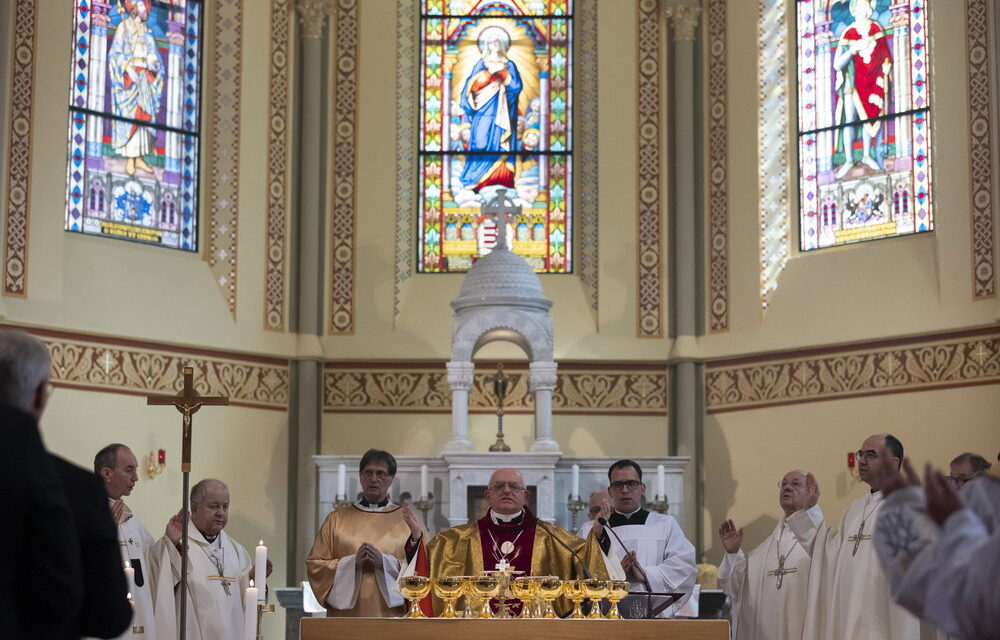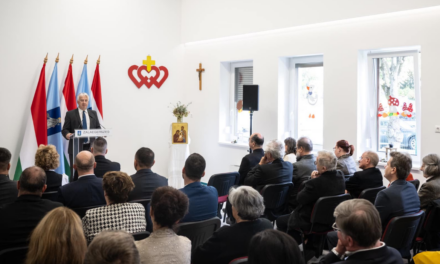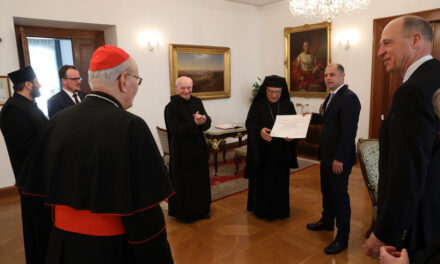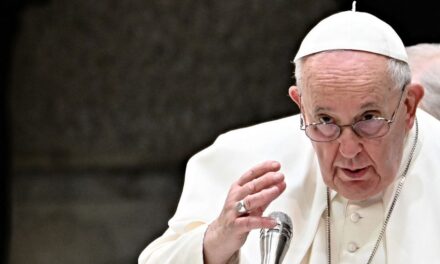The Cathedral of Our Lady in Kaposvár was renovated, the great church, its organ and altar were blessed and consecrated by László Varga, the bishop of the Diocese of Kaposvár, on Friday.
Miklós Soltész , the Prime Minister's Secretary of State responsible for church and ethnic relations, said that both physical and spiritual construction is necessary for the churches. He pointed out that 200 churches have been built in the Carpathian Basin in the past period, and more than 3,000 have been renovated or are being renovated, including the main church of many episcopal seats.
"Many people do not understand why this is necessary, many attack and criticize the investments, many even threaten and, if they have the opportunity, withdraw support from the churches," he said.
According to his explanation, the reason for this is that they do not understand, do not want to acknowledge: churches create community, peace, preserve and pass on the values of the created world.
"They don't want to accept the fact that the more than 1,500 community houses, parishes, and parishes renovated with our churches and working together serve the nation and in historical times strengthen the unity of those who work in them and the nation," he said.
He pointed out that the church real estate reconstruction also extended to the buildings of the Reformed, Evangelical and Jewish communities.
Speaking about the war in Ukraine, Miklós Soltész emphasized that two battles had been won on Thursday: "our sons and fathers do not need to be taken to foreign lands to perish", and the "senseless, leading nowhere total energy embargo" which would have caused an economic collapse in Europe, including in Hungary, had been avoided too.
"These are responsible, patriot-loving decisions, as opposed to irresponsible hot-headedness that serves foreign interests," he said.
According to the state secretary, Hungary must also fight to provide for hundreds of thousands of refugees. He believed that the churches had done a great job, their charitable organizations had already helped 250,000 people in Hungary, Subcarpathia and beyond the Carpathians.
Miklós Soltész called for a fight against an ideology that "wants to overwrite the divine command, the order of the created world, the teachings of Christ."
"If we don't take this seriously, we will lose our children and young people in a spiritual sense, so let's raise our voice boldly, let's not suffer the fate of many of our sister churches in Western Europe who surrender," he stressed.
Attila Gelencsér , the Fidesz parliamentary representative of Somogy's electoral district number 1, who will be running again in the elections, spoke about how the Hungarians became a church-building nation, and Christianity is the guiding thread of the history of Europe and the Hungarian nation.
"We are not European for geographical reasons, but because we are Christians, and we are guided by the firm conviction that a strong and successful Hungary can only be built on these traditions, on our national, Christian European traditions," he said.
He added that the Christian faith and culture are a resource that keeps our country, the basis of our freedom, and also the source of our renewal.
It is becoming more and more difficult to achieve this, because we live in an age that does not care about God, neglects national self-awareness, and lets conservative, traditional values disappear, he said.
He believed that Europe and part of the world had turned away from God, there are no fixed points to cling to, the task is to protect and strengthen the way of life that grew out of the Christian faith, human dignity, the family, the country, and church communities.
"The material wealth of the country is very important, but if a country, a nation becomes spiritually empty, rejects Christianity, sooner or later it is doomed to destruction," he said.
Károly Szita (Fidesz-KDNP), the mayor of Kaposvár, emphasized that building and rebuilding a church is always a confession of faith, a confession of the values we want to live by and a confession of gratitude, the faith and trust that sustains the nation.
"Our churches must always be rebuilt when we feel that time has eroded their walls, just as we must rebuild our own faith when we feel that the points of alignment that we thought were safe until now are disappearing in the world that is collapsing," he said.
László Varga said about the HUF 2.1 billion reconstruction that was carried out with the support of the government during the Mass held on the occasion of the handover of the cathedral: the building has become more attractive from the outside and the inside with its light and warm colors.
He reminded us that Lent is a time of conversion and renewal, and on this holiday he prays that the church will be filled by brothers who are reborn in spirit and renewed in heart.
Gábor Mohay , the chief architect of the Diocese of Kaposvári, said about the renovation of the cathedral built in 1886 in neo-Romanesque style: the construction included the replacement of the roof, the painting of the facade, and the protective glazing of the windows.
Inside, the flooring was replaced, the heating, electrical network, and lighting were modernized, the sanctuary was expanded, the organ was renovated, new pews were installed, and the frescoes were restored.
MTI
Photo: László Varga, the bishop of the Diocese of Kaposvár, presents the Holy Mass in the renewed Cathedral of Our Lady of Kaposvár on the day of its dedication, March 25, 2022. MTI/György Varga













